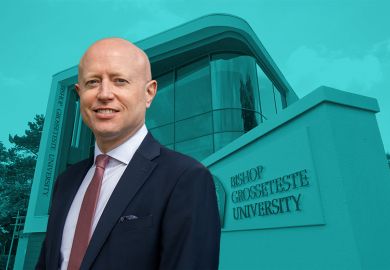Some schools earmarked by the government as leaders in training teachers have revealed “dissatisfaction” over their partnerships with universities, adding that in some cases they have created a “sense of inertia”, according to research.
Toby Greany, professor of leadership and innovation at the London Centre for Leadership in Learning at the UCL Institute of Education, who has co-authored a report on “teaching schools”, said that many were questioning the value that they were getting from working with higher education institutions.
“While [any given partnership] had strengths because it was about trust and a relationship, sometimes there was a sense of dissatisfaction [from schools],” said Professor Greany, who launched his report Partnerships Between Teaching Schools and Universities at the UCL IoE last month.
He added that some of the teaching schools – which have a key role in training teachers under the government’s School Direct scheme – did not feel “as though it’s a proper partnership, and that’s creating a sense of inertia”.
Professor Greany stressed that the schools expressing concerns were still those “absolutely committed to the role of research-informed practice and saw a role, in the main, for universities”.
The study adds that the schools’ dissatisfaction is often coupled with a sense of being trapped in the relationship because of the difficulties and concerns about “going it alone”.
“[The dissatisfaction is] tempered by a view that the logistical challenges and emotional effort required to sever the link would be too much to take on,” the report says.
Professor Greany and his team conclude that school leaders must “balance the hard financial aspect” of school-university partnerships with an “assessment of the quality of provision on offer” from the university.
For successful and worthwhile partnerships, they recommend that school leaders be clear on what they need and what they can offer and ensure that – once a partnership has been established – they “create time and space for staff from each institution to work together to achieve agreed objectives”.
Register to continue
Why register?
- Registration is free and only takes a moment
- Once registered, you can read 3 articles a month
- Sign up for our newsletter
Subscribe
Or subscribe for unlimited access to:
- Unlimited access to news, views, insights & reviews
- Digital editions
- Digital access to THE’s university and college rankings analysis
Already registered or a current subscriber?





